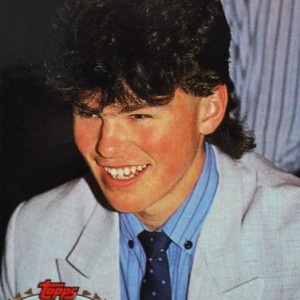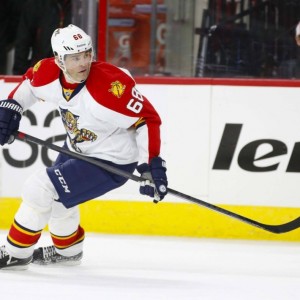
July 11, 2001. It was a relatively mild, but heavy summer day in Pittsburgh. And although the frigid weather was positioned squarely in the rearview mirror and seemingly distant future, everyone’s attention was turned to the ice.
After endless speculation, the Pittsburgh Penguins made the decision to trade their superstar Czech forward Jaromir Jagr, along with defenseman František Kučera, another Czech, to the Washington Capitals for three prospects, Kris Beech, Michal Sivek and Ross Lupaschuk. The trade after Jagr publicly asked for a trade three times during the 2000-2001 campaign. Frictions with the team’s head coach, Ivan Hlinka, and the difficulties of sharing the spotlight after Mario Lemieux’s much-publicized return to the ice, coupled with a struggling franchise’s inability to handle Jagr’s superstar salary, made the trade an inevitability.
The then-29-year-old Jagr was one of the league’s premier players. He had collected two Stanley Cups with the Penguins during his first two seasons before transforming into the NHL’s most dominant scorer of the mid-1990s. Between the lockout shortened 1994-1995 and 2000-2001, he won one Hart Trophy, five Art Ross Trophies (including four in a row from 1997 to 2000) and was an All-Star all seven years. During his 11 years in Pittsburgh, he played 806 games, scored 439 goals, earned 640 assists and tallied 1079 points.
Despite what the team lost, the team’s general manager, Craig Patrick, tried to sell the deal to the fans. He told the Pittsburgh Post-Gazette that he was “delighted” with the return the team received for Jagr, going so far as to call Beech a potential franchise player with skills comparable to those of Ron Francis.
For the Capitals, and eventually the New York Rangers, Jagr would continue to score in the upper echelons of the league. He came up just shy of another Art Ross during the 2005-2006 season, when he tallied 121 points for the Rangers. He scored more than 70 points in every season until he departed for Europe following the 2007-2008 season when he was 35 years old.
The Penguins, however, came to learn that they had been fleeced by Washington. Beech, the supposed franchise player, played in 100 games for the Penguins in which he managed 10 goals and 17 assists for a total of 27 points. Michal Sivek, a left-shooting Czech centre, played 38 games and scored only six points. Ross Lupaschuk played all three of the NHL games he participated in during his career for the Penguins. He scored no points.

For reasons that needn’t be elaborated beyond the obvious, many Penguins fans were furious in the aftermath of this trade. Its motivation was clear and sensible, but Patrick claimed repeatedly that the offers he received from other teams, including the Rangers, were ultimately nothing compared to the one submitted by the Capitals. How could this have happened? Were this alternative deals really so much worse? These are details that are likely lost to time.
But 14 years later, even after the devastation of that trade and an alarmingly close teeter toward a franchise relocation, it is clear that the franchise made the right decision. Hindsight is 20/20, but the return of three prospects for the unloading of a massive contractual obligation and distraction cannot be overstated. Jagr was slated to make $20.7 million over the final two years of his contract and he was not the matured player he is now. He was antagonistic toward teammates, had developed an enormous gambling problem and allegedly had a glovebox full of unpaid speeding tickets.
Trading Jagr was ultimately the right move for both parties. Jagr was allowed to assume the spotlight elsewhere and the Penguins, while initially dealt a horrific hand that nearly shot them in the foot, were able to vault over countless obstacles on their way to success that has included a Stanley Cup and regular playoff appearances.
Jaromir Jagr has still played more games with the Penguins than with any other team combined. When he finally hangs up his skates, something that looked near about a decade ago so who knows when it will happen, he will no doubt be remembered as one of the best Penguins ever to skate.
But to those still saddened by his departure all those years ago: don’t be. It was the right call then and it has been right ever since.